Janet Commins: How police caught her killer after 41 years
- Published

Stephen Hough was trapped by his DNA after 40 years
The killing of Flintshire schoolgirl Janet Commins made headlines across the UK in 1976. Now, ex-soldier Stephen Hough has been jailed for 12 years for her rape and manslaughter. He was caught by his DNA 40 years on, even though another man spent six years in prison for the crime.
On the evening of 7 January 1976, 15-year-old Janet Commins asked her mother Eileen if she could go swimming with her friends.
Her mother said no, as she thought Janet looked a bit pale, but the teenager sneaked out of the family's bungalow in King Edward Drive anyway, leaving a note to say she would be back by half past eight.
She never came home.
Four days later, Janet's lifeless body was found under a thicket near a school playing field by three girls playing hide and seek. She had been suffocated during a savage sexual assault.
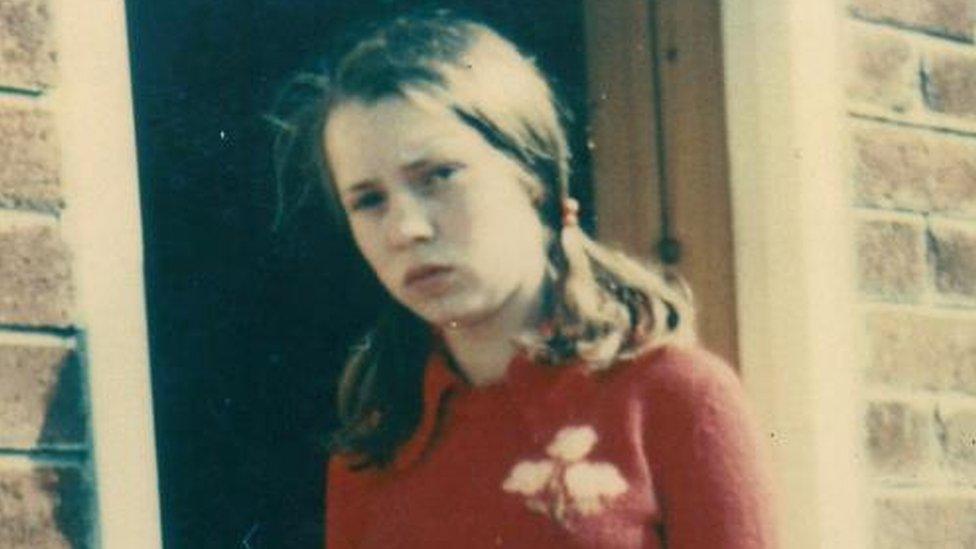
She had bruising under her chin, abrasions to her neck and a wound in her scalp.
Her body had been dragged along the ground and although she was still clothed, both her shoes were missing.
Mud found on Janet's clothing indicated part of the attack took place at the town's Gorsedd Circle, a permanent reminder of when the National Eisteddfod came to Flint in 1969.
The town - at that time a small, close-knit community - went into shock.
"It had a profound and devastating effect on Flint," said local councillor Alex Aldridge.
"It was an extraordinary feeling, I had a daughter who was just under two at the time and to think a young girl had befallen this awful fate, robbed of life.
"It's something you'll never forget. It's still raw and it's still hurtful."
Police mounted a huge manhunt, drafting in about 120 officers to scour the area around the crime scene and conduct house-to-house inquiries.
Journalist Paul Mewies, who covered the story at the time, said it made the headlines across the UK.
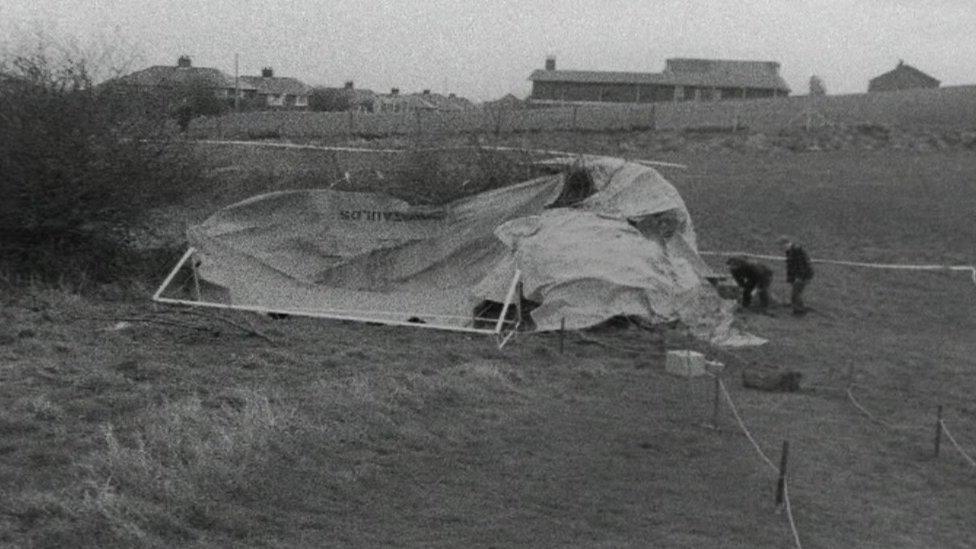
Janet's body was found hidden under bushes near Gwynedd Primary School
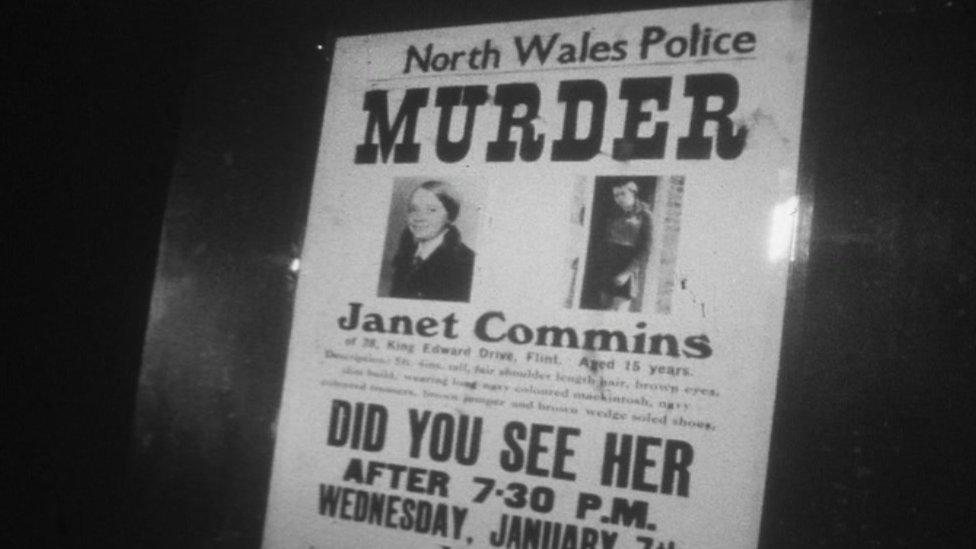
"I can remember how not just the town of Flint but a much wider area was shocked by this awful case - the fact that a schoolgirl was killed on a playing field," he said.
"It stuck in my mind. I've reported on a number of tragedies over my career but this one does stand out."
Ann Dunn, who lived close to the field where Janet's body was discovered, remembers the town "swarming with policemen".
"It was quite upsetting," she said. "There was a lot of fear at the time. People were frightened it would happen again."
About 10,000 people were quizzed by police and all local men aged 17-22 were asked to account for their movements.
Among them was Stephen Hough, who had turned 17 the day after Janet's body was found and whose grandparents' house overlooked the area where her body had been hidden.
But police ruled him out after he told them he had been stealing petrol on the night of the killing - a crime for which he was later prosecuted and fined.
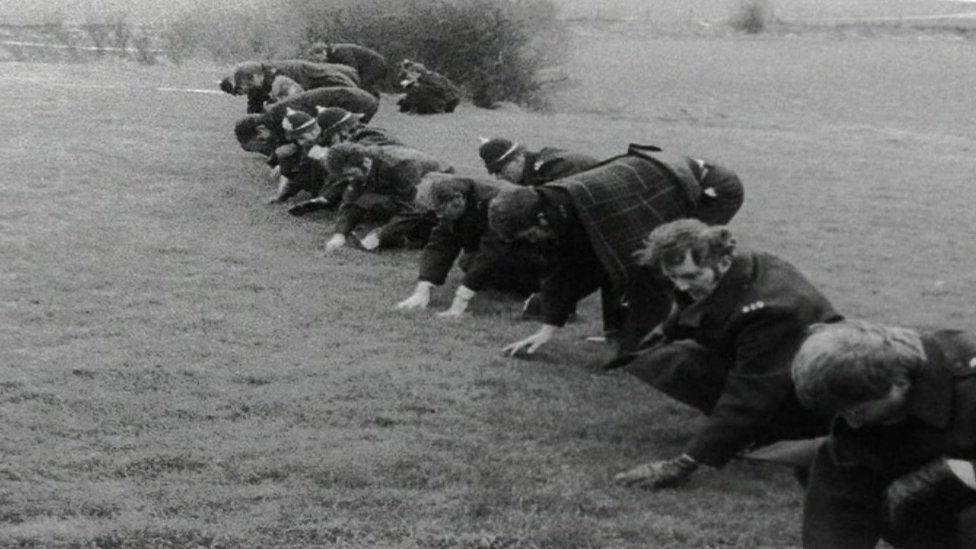
Police scoured the area around the crime scene for clues
Their attention turned to Noel Jones, a barely literate 18-year-old traveller from Coedpoeth, Wrexham.
He was picked up the day Janet's body was discovered and at first denied all knowledge of the crime.
But later his girlfriend told police he had confessed to killing Janet and had asked her to provide him with an alibi.
After two days of questioning, he signed two detailed confession statements.
On the second day of his murder trial in June 1976, he admitted manslaughter and was sentenced to 12 years in prison.
As Noel Jones served his time, Hough must have thought he had got away with it.
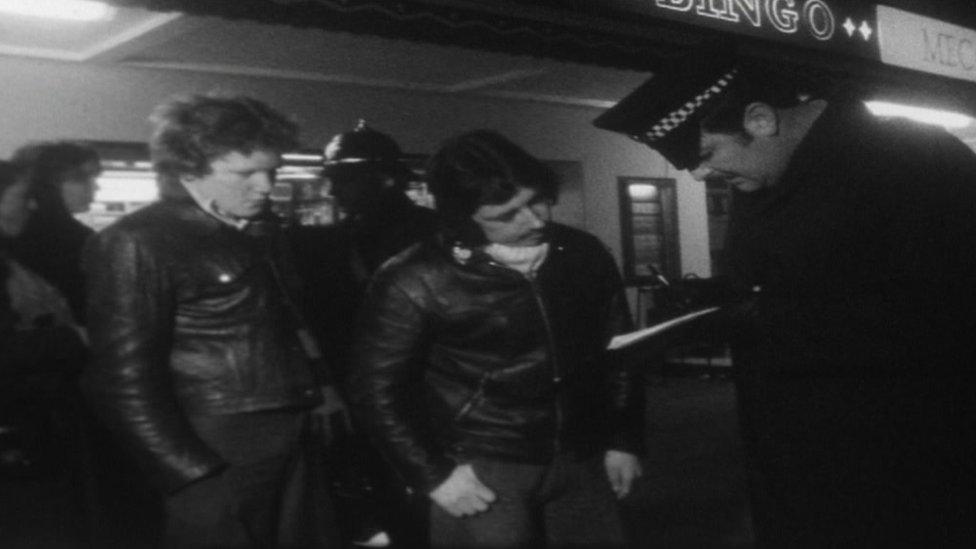
All local men aged 17-22 were asked to account for their movements on the night Janet died
But 41 years on, advances in DNA profiling finally brought him to justice.
In 2006, police carried out a cold case review and DNA from a man was identified in samples which had been taken from Janet's body and stored for three decades.
Ten years after that, police took a sample of Hough's DNA when he was arrested for sexually assaulting a 15-year-old girl - a crime he later admitted and for which he has been given three years in prison.
In a routine cross-matching exercise, it was linked to sperm cells found on Janet's body.
Mold Crown Court heard there was a billion-to-one chance it did not belong to Hough.
Despite the evidence, Hough insisted he was innocent - repeatedly answering "no comment" in police interviews and telling the court he had "no explanation" for why his DNA was found on Janet's body.
The jury cleared him of murder but convicted him of Janet's rape, sexual assault and manslaughter.
The case also throws a spotlight on policing practices 40 years ago.
Giving evidence by video link, Noel Jones described the six years he spent in prison as a "nightmare" which "absolutely destroyed my life".
He has never challenged his conviction, but says he is innocent and only confessed because police had pressured and coerced him.
The man who led the original investigation, Eric Evans - who later rose to the rank of deputy chief constable - also gave evidence at Hough's trial.
He told the court nobody thought to offer Noel Jones a solicitor during the initial stages of his questioning because he wanted to investigate "properly and thoroughly".
Police could be "impeded" by solicitors representing clients, he said, adding that "there was no requirement in those days for a person to be advised that he could have a solicitor".
It remains to be seen what action will now be taken over Noel Jones' conviction.

Residents laid flowers in Janet's memory on Flint's Gorsedd stones after Hough's arrest in September 2016
The Independent Police Complaints Commission is probing the North Wales force's handling of the original case in 1976 and when it was revisited 30 years later.
Whatever the outcome of that investigation, Janet's family now knows for sure who killed her.
"I hope there is closure for her mum," said councillor Alex Aldridge. "The law has completed its part but no matter what the verdict, the loss is beyond belief."
"This young girl never experienced life, possibly getting married, having children, becoming a grandmother.
"Flint will never forget Janet. It's four generations now - over 40 years - and her memory is as fresh today, in a good way, that we are remembering and honouring her name."
- Published13 July 2017

- Published10 July 2017

- Published5 July 2017
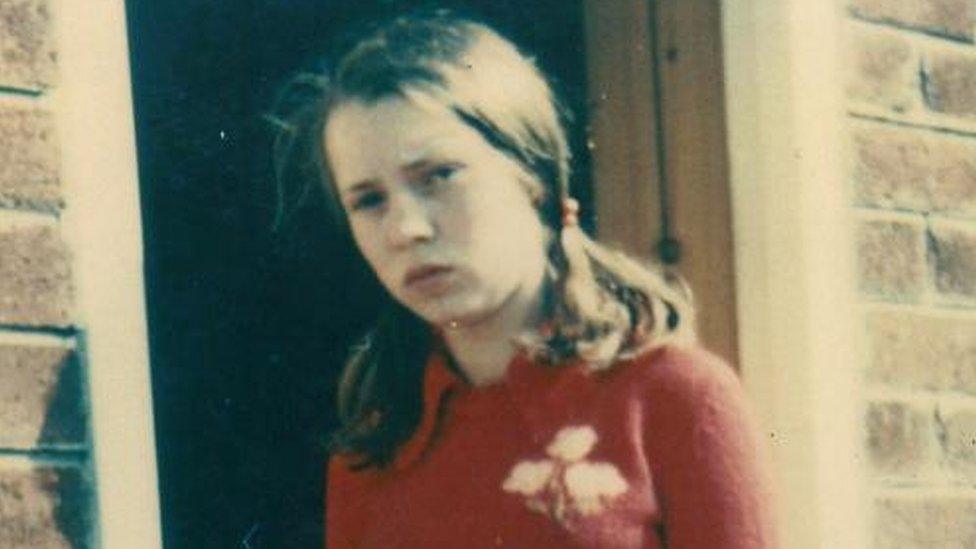
- Published3 July 2017

- Published4 January 2017

- Published16 September 2016
